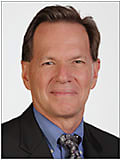I am sure we can agree on one thing: The past several months has been challenging. For myself, I have worked hard to establish and sustain some semblance of normalcy, while focusing the BSM team on reinventing how we do what we do in the next phase of a COVID-19 world. I have leaned on my family, friends, and colleagues as a source of strength. This experience has reinforced the need for community.
With the arrival of summer, practices and surgery centers have re-opened and doctors, patients, and staff are finding a new “rhythm” of patient care. Telemedicine, PPE, and social distancing have become the new reality. The role of the ophthalmic professional has never been more prominent and important. Yes, it is easy to get stressed out when accommodating to new patterns of patient care; however, we continue to be impressed with reports of how staff have flexed and adapted to create an outstanding patient experience.
Discovering silver linings
In a year or two, when we look back on the current crisis, I believe practices and staff will have discovered several silver linings. For example:
- Practices will have better integrated technology to enhance the patient’s experience. Virtual consults and hybrid models of care will be integral.
- Doctors and staff will be better prepared and nimbler. Flexibility in scheduling and improved teamwork will be a consistent theme among better performing practices.
- Management and leadership training will become a norm for practices and surgery centers. The pandemic has shone a bright light on the value of strong, compassionate, yet tough-minded and determined practice leaders.
- Ophthalmic teams will be lean and more productive.
- Creative energy and ingenuity will be unleashed as practices regain control over what matters most for patients and staff.
Leading during crisis requires one to dial up several important behavioral qualities. The most salient includes the need to remain calm, especially when those around you are melting down. Leaders have discovered that team members will respond to a hopeful tone and positive attitude. When in a crisis, it is also important to get stuff done. You cannot be too focused on getting to a “perfect” solution. Instead, the focus needs to be on finding better solutions and adjusting as you gain more data and feedback.
I encourage you to embrace the next phase of the COVID-19 journey as practices shine a light on future opportunity. OP










